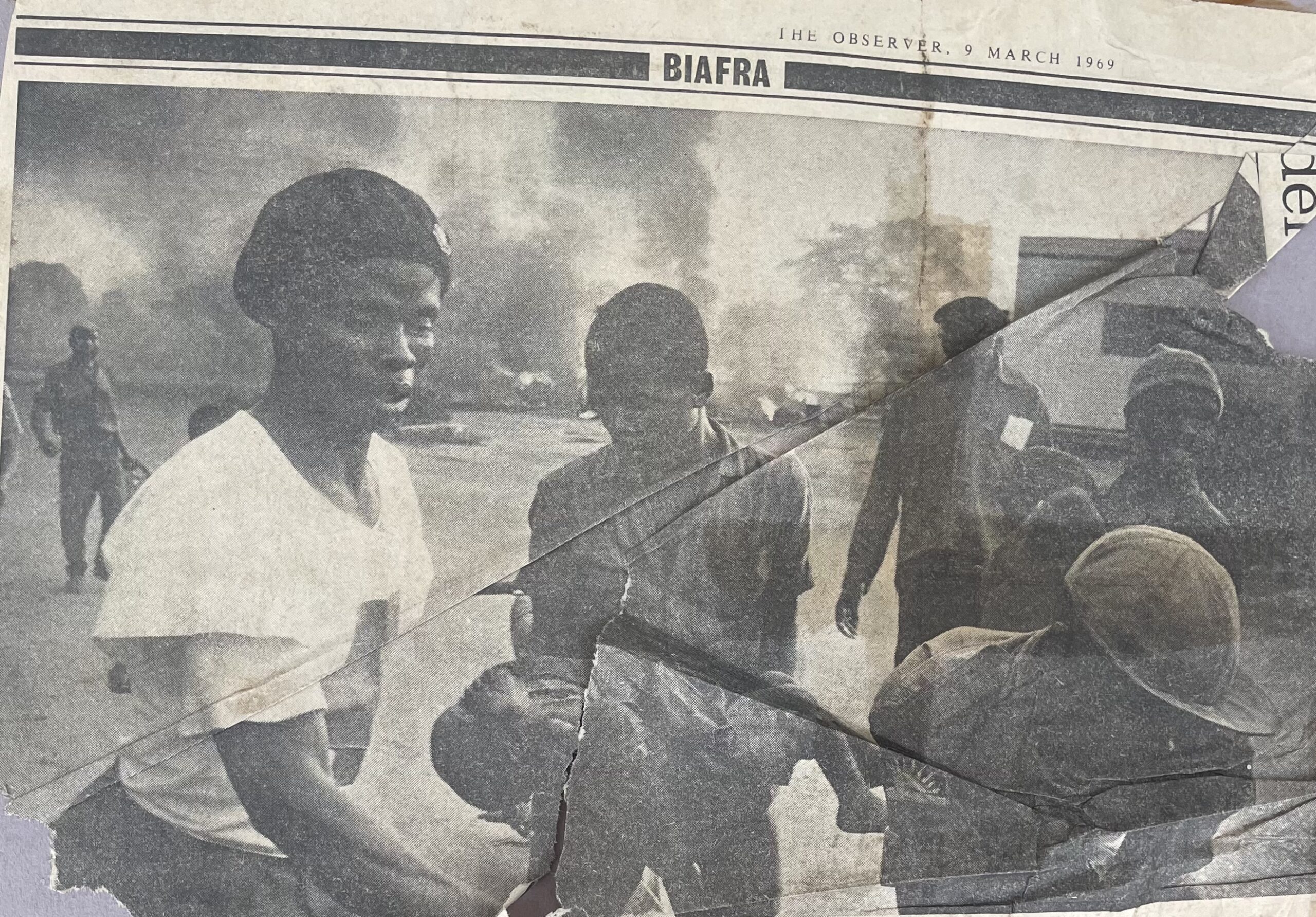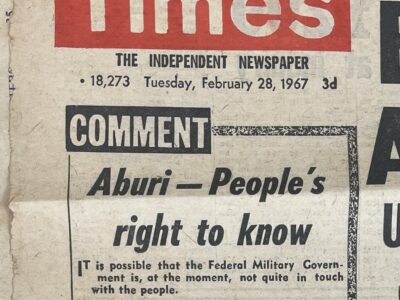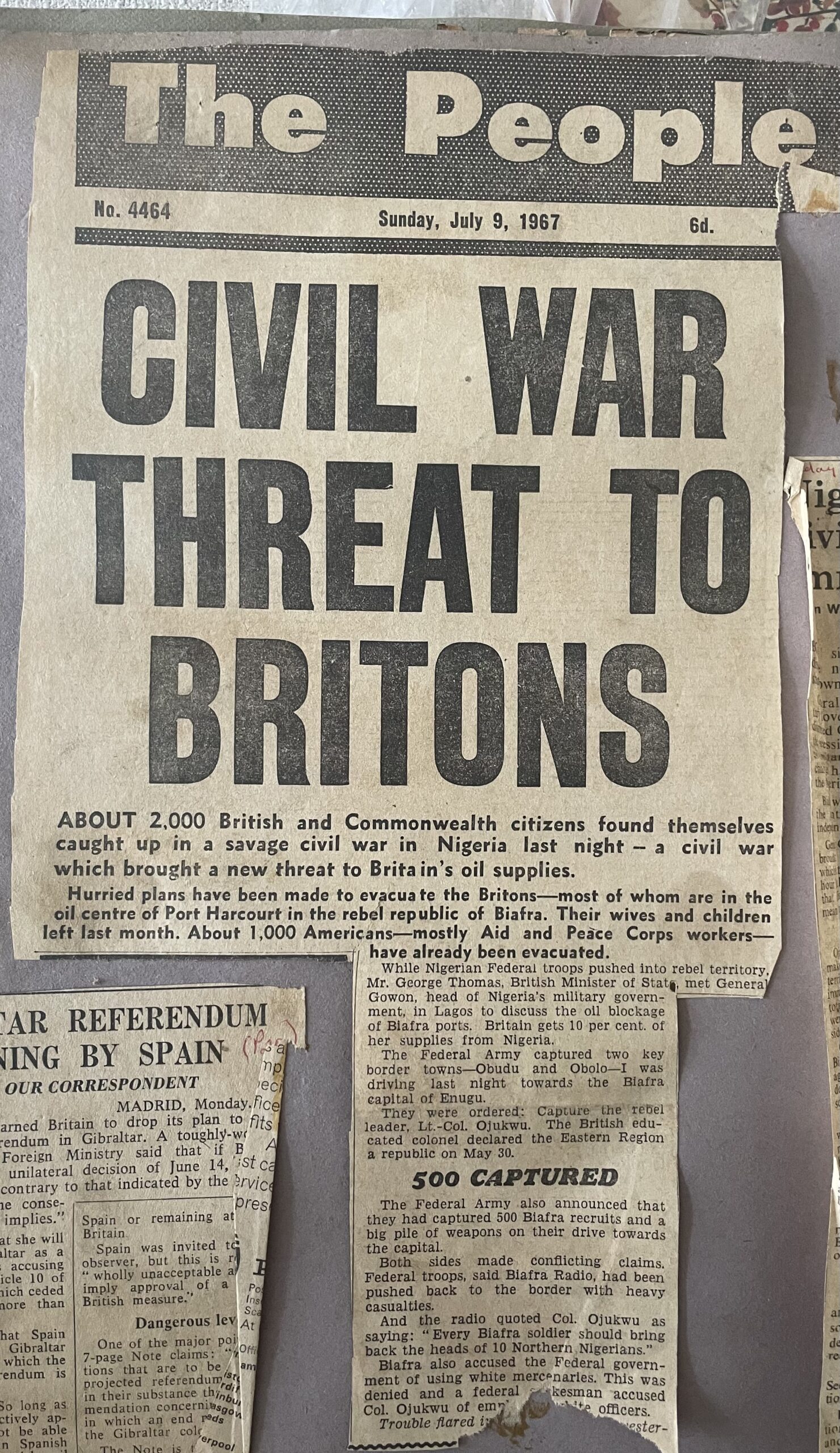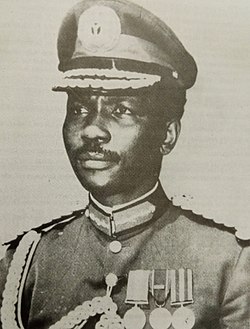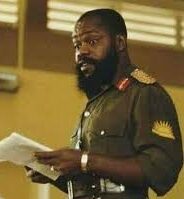
General Chukwuemeka Odumegwu Ojukwu was the leader of the defunct Republic of Biafra (1967-70). He was born in Zungeru in today’s Niger state in the old Northern region on the 4th of November 1933 to Sir Louis Phillipe Ojukwu a highly successful Nigerian Millionaire businessman. He attended the elite Kings College secondary school in Lagos where he got into trouble with the colonial authorities for slapping a White man who was abusing a black woman in public, some other reports say he was part of a student uprising, this caused his father to ferry him abroad to Britain to attend a prestigious boarding named Epsom College.
After college he proceeded to Oxford University where he obtained his first and second degrees, he then returned to Nigeria but rather than join his father’s splurging business empire, he joined the civil services as he didn’t want to be under his father’s direct control but sir Ojukwu would have none of it and unlocked his connections by urging the Governor General of the Eastern region at the time to elevate his son’s status which had the opposite effect as the younger Ojukwu left the civil service and tried to join the Nigerian army, which sir Ojukwu again used his influence to block but Emeka outwitted his dad by spurning an automatic officer’s entry point due to his education and background to slide in as an unknown NCO (non commisioned officer).
He was outted as the son of a very rich man by accident when he corrected his RSM’s english pronounciation, apparently during a parade, the RSM (Regimental Sergent Major) had called a soldier to show the Sepuluka of his rifle which the highly educated and english accented Ojukwu corrected him to say it was ‘Safety-Catch’ and not Sepuluka. The enraged and embarassed RSM duly reported him for Disobedience, again this had the opposite effect because the senior white officers quickly picked up his British upper class accent and were able to correctly identify him and this led to his promotion up the chain and he was sent to Mons, Eaton Hall, for a short service commision course.
On his return after attending more officer courses in England, he was given command of the 5th Battalion in Kano, a position he held until 14th of January 1966 when the first coup happened the next day. He helped foil the coup by pledging his loyalty to the federal forces of Gen Aguiyi Ironsi (This puts to bed the accepted lie that the coup was an Igbo coup), when Major Chukwuma Nzeogwu who was in charge of virtually the whole North threatened to attack him from Kaduna, Lt col Ojukwu stood his ground and arrested Capt Ude whom Nzeogwu sent to Ojukwu’s 5th battalion.
He was appointed the Governor of the Eastern region of Nigeria by Gen Aguiyi Ironsi and was the Governor until he declared the Biafran republic on the 30th May 1967 when he became its president. Once the war started he discharged his duties as overall leader very well, in fact he remained cool throughout the war and that calm disposition gave his field commanders and administrators a lot of confidence needed in a very devastating war, Gen Alex Madiebo his GOC reported only seeing him perturbed only once throught the war.
Gen Ojukwu also led from the front by attending many war fronts and battles like Opi Junction, Okigwe and Oguta amongst others. He ran a democratic form of government because consultation was sought at all levels of civil authorities and he also had alot of non military advisers. But his detractors claim he never took his military cohorts into full confidence and they never knew where Biafran’s weapons were and that he surrounded himself with an inner clique made up of his Nnewi kinsmen and this affected the prosecution of the war.
Biafra having been on its last legs militarily since November 1969, was now in its death throes from the 9th on January 1970, as the Nigerian forces attacked relentlessly and ceaselessly everywhere prompting Gen Ojukwu to make a national broadcast to the people of Biafra and codely tell them that he was winding doen the war and leaving and i quote ” The task of a leader of a people at war is to be responsive to the plight of his people, to determine what level of sacrifice can be accepted”, i think one can decipher the meaning of this quote. He then left with a contingent of his High Command and Cabinet for the Ivory Coast in ‘search of peace’ and was subsequently granted asylum there.
He was pardoned by the Government of Alhaji Shehu Shagari after years of clandestine negotiations and returned in 1982 to a hero’s welcome, he joined Nigerian politics and was the leader of a political party, he died in London in 2011 at the age of 78.
Please leave a comment below:
References:
The Nigerian Revolution and the Biafran War by Gen Alex Madiebo – Amazon books
The Nigeria-Biafra War 1967-1970; My Memoirs by Col Patrick Anwunah – Google books


